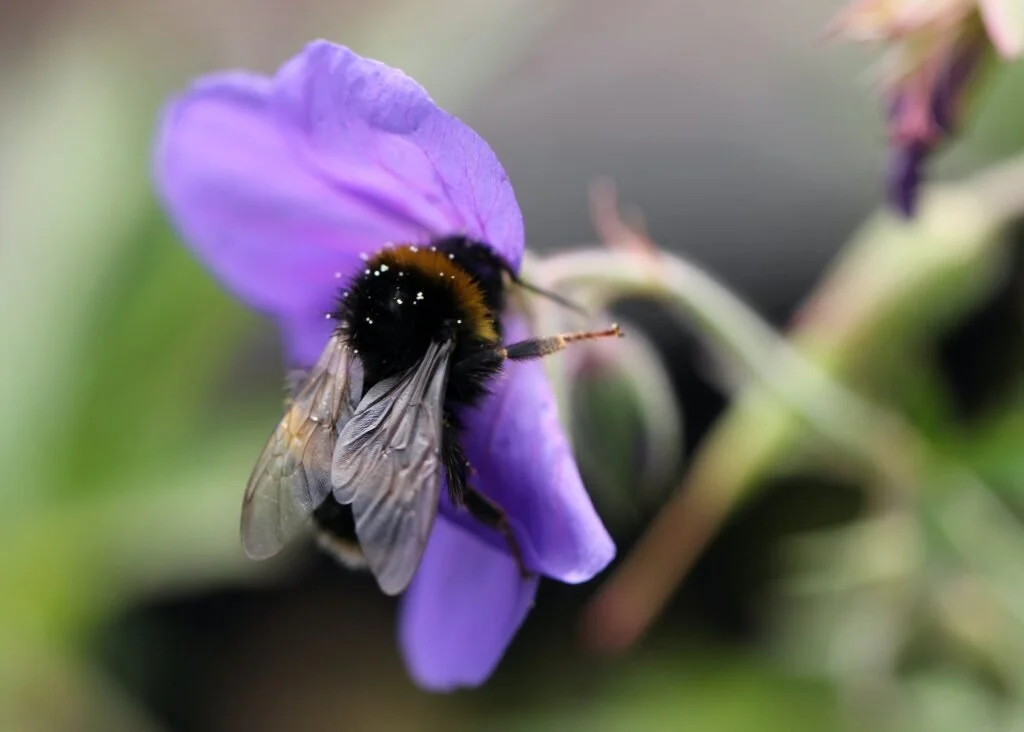When the pandemic started, the province was testing the population and updating the number of COVID cases daily. But four years on, testing has stalled and the main way to get a snapshot of the COVID picture is through wastewater. Mark Servos is with the department of Biology in Canada and Research Chair in Water Quality Protection at the University of Waterloo.
UCalgary awarded 2 prestigious Canada Excellence Research Chairs
Deborah McGregor is an internationally celebrated scholar and Canada Research Chair in Indigenous Environmental Justice. She joins UCalgary from York University, where she was cross-appointed to the Osgoode Hall Law School and the Faculty of Environment and Urban Change. As the CERC in Indigenous Ways of Climate and Water Sustainability for Planetary Health and Well-being, McGregor will generate understanding of, and build support for, Indigenous leadership in Earth-based reconciliation and justice, focusing on climate change as the overriding symptom of the planetary health crisis.
Researchers bring the 'Sudbury method' to Peru, to help clean up mine waste
Researchers from northern Ontario are in Peru where they are sharing their knowledge of what has become known as the "Sudbury method." The Sudbury method refers to the community's work over decades to rehabilitate a landscape damaged by mining and smelting. "Sudbury has become recognized almost globally now for taking one of the most damaged landscapes on planet Earth and through a lot of work by citizens, community members, industry and government, turning it into actually a really, really nice place to live," said Graeme Spiers, an emeritus professor in environmental and earth sciences at Laurentian University.
The 10 Countries With the Most Lakes in 2024
While it is incredibly difficult to count all the lakes in different countries on the planet due to conflicting ideas on what constitutes a lake, this has not stopped expert scientists and researchers from trying. Geographers from McGill University in Canada conducted a recent study on all lakes on Earth to study their effect on the global climate. From this study, a list of countries with the world’s largest number of lakes was created.
Dune erosion on Sable Island caused loss of groundwater along exposed coast
Where sand dunes disappear on Sable Island, so does the underground freshwater supply, according to new research underscoring the importance of dunes to the island's ecosystem. The dunes serve as a natural barrier, protecting against the relentless waves and temporary salinization of groundwater caused by ocean flooding. Dunes also help refresh the water table by funnelling water from rain and snow into aquifers that, in some places, are 40 metres deep.
New irrigation research helping Island farmers save their crops — and water
New research being spearheaded out of P.E.I. is helping Island farmers make better decisions around when to irrigate their crops — and some say it could not come at a better time. Researchers at Agriculture and Agri-Food Canada have been working on a formula to calculate when to irrigate and how much water to use. The result is a new, online irrigation calculator that's accessible to farmers.
UW researchers say a simple biofilter can clean up water in wildfire areas well enough to drink
Smoke is a major health concern during a wildfire - but the fires can also have an impact on drinking water. Now, University of Waterloo researchers have helped discover a way to clean up drinking water quickly and inexpensively - which could be a game-changer in remote communities that find themselves without drinkable water.
Water from nearly half of U.S. faucets contains ‘forever chemicals’: study
Drinking water from nearly half of U.S. faucets likely contains “forever chemicals” that may cause cancer and other health problems, according to a government study released Wednesday. The synthetic compounds known collectively as PFAS are contaminating drinking water to varying extents in large cities and small towns — and in private wells and public systems, the U.S. Geological Survey said.
Hidden Beneath the Surface
In just seven decades, the scientists say, humans have brought about greater changes than they did in more than seven millennia. Never in Earth’s history has the world changed this much, this fast. Never has a single species had the capacity to wreak so much damage — or the chance to prevent so much harm. “It’s a line in the sand,” said Francine McCarthy, a professor of Earth sciences at Brock University in Ontario, who has led research on Crawford Lake. “The Earth itself is playing by a different rule book. And it’s because of us.”
How Canadian wildfire smoke could impact the Lehigh Valley’s water, crops long term
Weeks after the Lehigh Valley turned sepia toned from Canadian wildfire smoke, the skies have cleared and there’s even been some rain, even though it hasn’t been enough to push much of the state out of moderate drought status. While environmentalists and researchers said impacts on the region’s crops and water may be few due to the short duration of smoky days, it’s a largely understudied topic. However, as climate change worsens and the chance for more wildfires increases, experts said the impacts could similarly escalate.
USask-led Global Water Futures marks the end of an era and looks to the future
The research coming out of Global Water Futures (GWF) is being presented at an open science meeting over three days from May 15–17, and will highlight some of the best science and knowledge addressing solutions for Canada’s water futures, including advancements in the forecasting and modelling of snow, glaciers, water quality, soil moisture, floods and droughts, in monitoring of water quality, in detection of the COVID-19 virus in community wastewater, in Indigenous co-creation of knowledge, and in how national and international policies could achieve water sustainability.
What else is in a flush? UCalgary researchers are going to find out
UCalgary researchers behind the hugely successful COVID-19 wastewater monitoring program and online COVID tracker are convinced of the potential of wastewater as a public health tool, and they’re not alone. Genome Canada, through regional partner Genome Alberta, has awarded the research group $2M through their Genomic Applications Partnership Program (GAPP) to investigate the potential of wastewater monitoring to detect and track more viruses, in partnership with Alberta Health. An additional combined $4M in funding for the project was awarded by Alberta Health, Genome Quebec, and the Government of Canada.
Concordia researchers fight shallow lake algae blooms with floating filtration technique
Climate change and human activity have been putting pressure on water bodies worldwide, and Canada’s vast network of lakes is no exception. Over the past decades, increasing nutrient levels have led to a process called eutrophication, in the shallow lakes dotting Quebec’s Laurentian region north of Montreal. These changes have led to a surge in algae blooms, rendering the lakes unusable and possibly disrupting the natural ecosystem.
University of Lethbridge researchers receive funding for potato-focused projects
Researchers at the University of Lethbridge (U of L) have received funding for new work focused on potatoes. Through the Agriculture Funding Consortium, the U of L researchers are getting nearly $250,000 to improve sustainable potato production. They will do this by looking at ways to reduce disease in the field and in storage, and to increase production while minimizing the use of resources.
Lithium levels in tap water drank during pregnancy linked to higher chance of children being diagnosed with autism
The level of lithium in a pregnant woman’s household’s tap water may correlate to a higher chance of their infant being diagnosed with autism, according to a new study looking at how this environmental factor may impact the prevalence of the neurological difference. The study, published Monday in the peer-reviewed journal JAMA Pediatrics, looked at lithium levels in Denmark's tap water and compared it to the health records of more than 50,000 children.
New UBC water treatment zaps ‘forever chemicals’ for good
Engineers at the University of British Columbia have developed a new water treatment that removes “forever chemicals” from drinking water safely, efficiently – and for good. “Think Brita filter, but a thousand times better,” says UBC chemical and biological engineering professor Dr. Madjid Mohseni, who developed the technology. Forever chemicals, formally known as PFAS (per-and polyfluoroalkyl substances) are a large group of substances that make certain products non-stick or stain-resistant. There are more than 4,700 PFAS in use, mostly in raingear, non-stick cookware, stain repellents and firefighting foam. Research links these chemicals to a wide range of health problems including hormonal disruption, cardiovascular disease, developmental delays and cancer.
Does toilet paper add cancer-causing PFAS to our wastewater?
Synthetic chemicals called PFASTrusted Source (per- and polyfluoroalkyl substances) are used in a variety of products, including cosmetics, cleaning productsTrusted Source, and nonstick cookware. Because many PFAS do not break down in landfills and can contaminate sources of drinking water for both humans and animals, they are considered harmful to the environmentTrusted Source. Additionally, exposure to PFAS has been linked to various health concerns.
So-called ‘safe’ pesticides have surprising ill effects
Health Canada is currently reviewing regulations for pesticides in Canada, and three UBC researchers say regulators might want to consider what happened in Japan. A lake in Shimane Prefecture has seen its commercial fishery collapse by more than 90 per cent since 1993, when insecticides known as neonicotinoids were first introduced to the area. It just so happens that zooplankton—the tiny creatures in the water that fish feed on—declined by 83 per cent during the same period.
Miners Find 2 Billion-Year-Old Water Reserve and There Is Something Living in It
Water is regarded as the second most important source of life, behind air, which most organic life requires constantly. The oldest water in the world is found in Canada, specifically the Kidd Creek mine in northern Ontario. In 2016, researchers discovered what is thought to be the oldest water, estimated to be at least 2 billion years old, but more likely 2.7 billion. The circumstances at the mine's bottom have been ideal for preserving the water. This ancient water was discovered at a depth of 2.5 kilometers (1.5 miles) because the Kidd Creek mine is the world's deepest basal metal mine, holding numerous metal minerals such as copper, zinc, and silver.
Extreme drought, weather forcing cattle producers to thin herds at near-record numbers: industry experts
An uptick in drought and other extreme weather events has beef producers in the U.S. and Canada thinning their herds in near-record numbers, which could lead to supply problems in the beef industry over the longer term, industry experts say. Producers will increasingly struggle with profitability amid the unpredictable seasons as climate change makes drought, flooding and wildfires more common, they say.





















